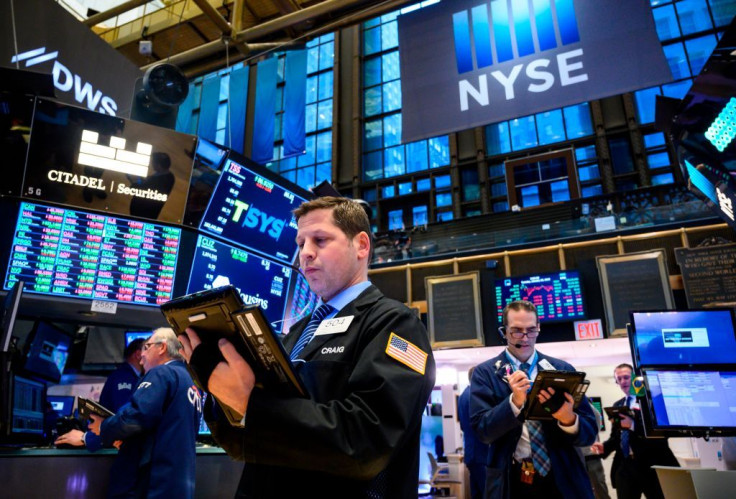S&P 500 Hits Record High As Fed Hints Possible Rate Cut Soon

Soothing words from U.S. Federal Reserve chairman Jerome Powell about a “more accommodative policy” on interest rates propelled the S&P 500 to a record close Thursday with the other two indices rallying higher.
The S&P 500 index added 27.72 points, or 1%, to end the trading day at 2,954.18 -- its first all-time high in seven weeks. This record came after the index earlier hit a new intraday peak of 2,958.06.
The benchmark Dow Jones Industrial Average rose 249.17 points, up 0.9% to 26,753.17, but falling 75 points short of its record set on Oct. 3. The NASDAQ Composite improved 64.02 points, up 0.8% to 8,051.34. This was the first time the NASDAQ finished above 8,000 since May 6.
Analysts were unanimous in saying yesterday’s rally came after Powell on Wednesday indicated the Fed might cut its benchmark interest rates, perhaps as early as July, but only if the economic outlook worsens.
“The case for somewhat more accommodative policy has strengthened,” said Powell at a news conference after the Federal Open Market Committee’s (FOMC) decision.
The 12-member FOMC kept rates unchanged as expected at 2.25 percent to 2.50 percent, but removed the word “patient” from its updated policy statement. This omission suggests the FOMC stands ready to act soon.
Expectations for a July cut rose to 100 percent on Thursday, according to the CME FedWatch tool that analyzes the probability of FOMC rate moves for upcoming meetings.
Analysts also said the Fed’s posture on looser monetary policy provided a strong case for the continued rise in stocks despite trade and geopolitical concerns, the newest of which are the heightened tensions against Iran.
Geopolitical tensions somewhat dampened the market’s upbeat mood Thursday following the shooting down by Iran of a U.S. Navy Northrop Grumman MQ-4C aerial reconnaissance drone in international waters off Iran.
The incident caused president Donald Trump to acknowledg the possibility of increased hostilities with Iran. Earlier, Trump tweeted Iran “made a very big mistake” and said, “you’ll soon find out” if the U.S. decides to strike back.
"Stocks' resilience in the face of growing US-Iranian geopolitical tension is a stark reminder not to fight the Fed,” said Alec Young, Managing Director of Global Markets Research at FTSE Russell.
“As the central bank's dovish messaging continues to drive interest rates lower, it's inoculating investors from other risks as the cost of capital and competition from bonds both fall.”
© Copyright IBTimes 2025. All rights reserved.





















